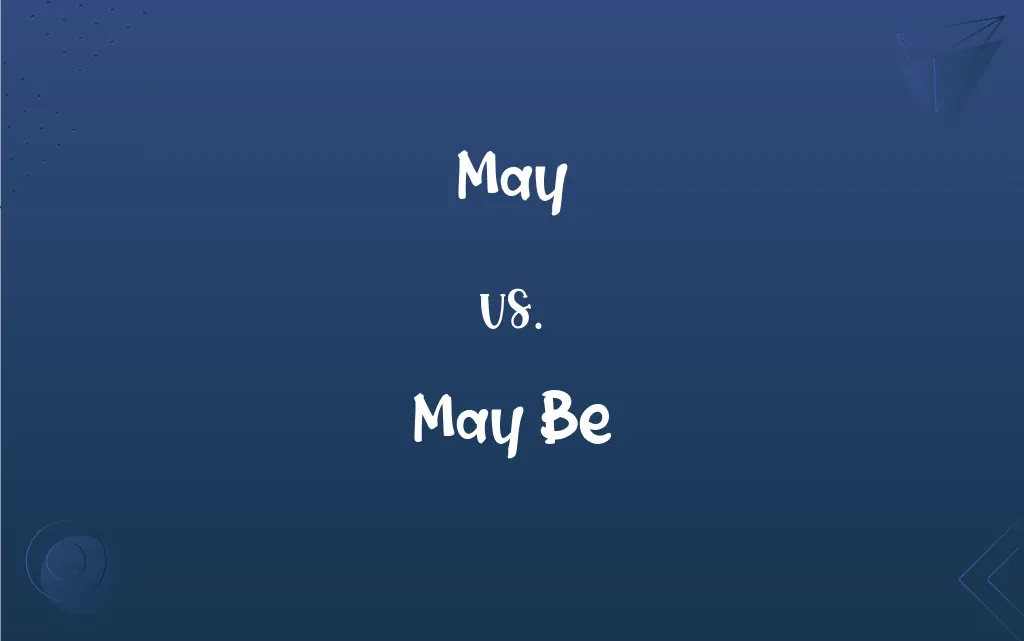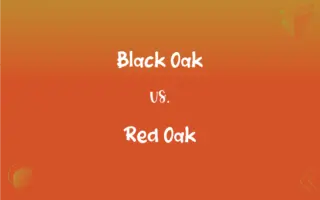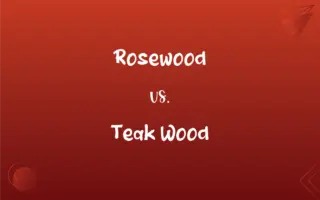May vs. May Be: What's the Difference?
Edited by Aimie Carlson || By Harlon Moss || Published on December 13, 2023
May indicates possibility or permission. May be is a verb phrase suggesting a likelihood or potential.

Key Differences
"May" is a modal verb used to express possibility or ask for permission, while "may be" is a phrase combining "may" and the verb "be", indicating that something might exist or happen. Both involve uncertainty, but "may" is more versatile in grammatical structure.
In usage, "may" can stand alone, as in "You may go now." Here, it grants permission. Conversely, "may be" always needs a subject and a complement, as in "It may be raining." It suggests a possibility or uncertainty about the state of raining.
"May" also expresses wishes or hopes, as in "May you have a good journey." "May be", however, is strictly used to indicate potential states or conditions, such as "She may be the winner."
Regarding formality, "may" is often seen in formal requests or polite questions, like "May I enter the room?" On the other hand, "may be" is a neutral phrase used in everyday speech to speculate about something, e.g., "He may be late."
In questions, "may" is used directly, such as "May I ask a question?" In contrast, "may be" is not typically used in direct questions but in indirect or reported speech, like "I wondered if it may be true."
ADVERTISEMENT
Comparison Chart
Function
Modal verb
Verb phrase
Usage
Permission or possibility
Speculation about a state
Sentence Structure
Can be standalone
Requires subject and complement
Formality
Often formal or polite
Generally neutral
Question Form
Used in direct questions
Not typically used in direct questions
ADVERTISEMENT
May and May Be Definitions
May
Wish or Hope.
May you live long.
May Be
Potential State.
She may be asleep now.
May
Possibility.
It may rain today.
May Be
Assumption.
He may be around 30 years old.
May
Polite Request.
May I borrow your pen?
May Be
Uncertainty about Identity.
The caller may be John.
May
Permission.
You may leave early.
May Be
Hypothesis.
This may be the key to the problem.
May
Formal Suggestion.
May we suggest a break?
May Be
Speculation.
It may be cold outside.
May
A hawthorn or its blossoms.
May
The fifth month of the year in the Gregorian calendar. See Table at calendar.
FAQs
Can "may be" stand alone as a sentence?
No, "may be" needs a subject and often a complement.
Is "may" formal?
"May" is often used in formal or polite contexts.
Is "may be" common in everyday language?
Yes, it's commonly used for speculation in everyday speech.
Can "may" be used in offering suggestions?
Yes, especially in a formal context.
Can "may be" indicate certainty?
No, "may be" suggests speculation or possibility, not certainty.
Is "may be" used to express hopes?
No, it's used for speculation about the present or future.
Does "may be" have a different meaning in questions?
It's not commonly used in direct questions but in speculative statements.
Is "may" a modal verb?
Yes, "may" is a modal verb.
Is "may" used for asking permission?
Yes, "may" is often used to politely ask for permission.
Does "may be" imply a definite state?
No, it implies a possible or likely state.
Can "may" express a wish?
Yes, "may" can express a wish, as in "May you succeed."
Can "may" be replaced with "might" for possibility?
Yes, but "might" often suggests a lower probability.
Can "may be" be used in formal reports?
Yes, when speculating or hypothesizing in a formal tone.
Is "may be" used in formal writing?
It can be, but it's more common in informal contexts.
Does "may" have multiple meanings?
Yes, including permission, possibility, and expressing wishes.
Does "may" change form for different subjects?
No, it remains the same for all subjects.
Can "may be" be used in conditional sentences?
Yes, particularly in speculative conditional statements.
Can "may" indicate future possibility?
Yes, such as in "It may happen tomorrow."
Is "may" used in legal contexts?
Yes, often to indicate permissible actions.
Can "may be" imply uncertainty about past events?
Yes, as in "He may be the one who called yesterday."
About Author
Written by
Harlon MossHarlon is a seasoned quality moderator and accomplished content writer for Difference Wiki. An alumnus of the prestigious University of California, he earned his degree in Computer Science. Leveraging his academic background, Harlon brings a meticulous and informed perspective to his work, ensuring content accuracy and excellence.
Edited by
Aimie CarlsonAimie Carlson, holding a master's degree in English literature, is a fervent English language enthusiast. She lends her writing talents to Difference Wiki, a prominent website that specializes in comparisons, offering readers insightful analyses that both captivate and inform.






































































